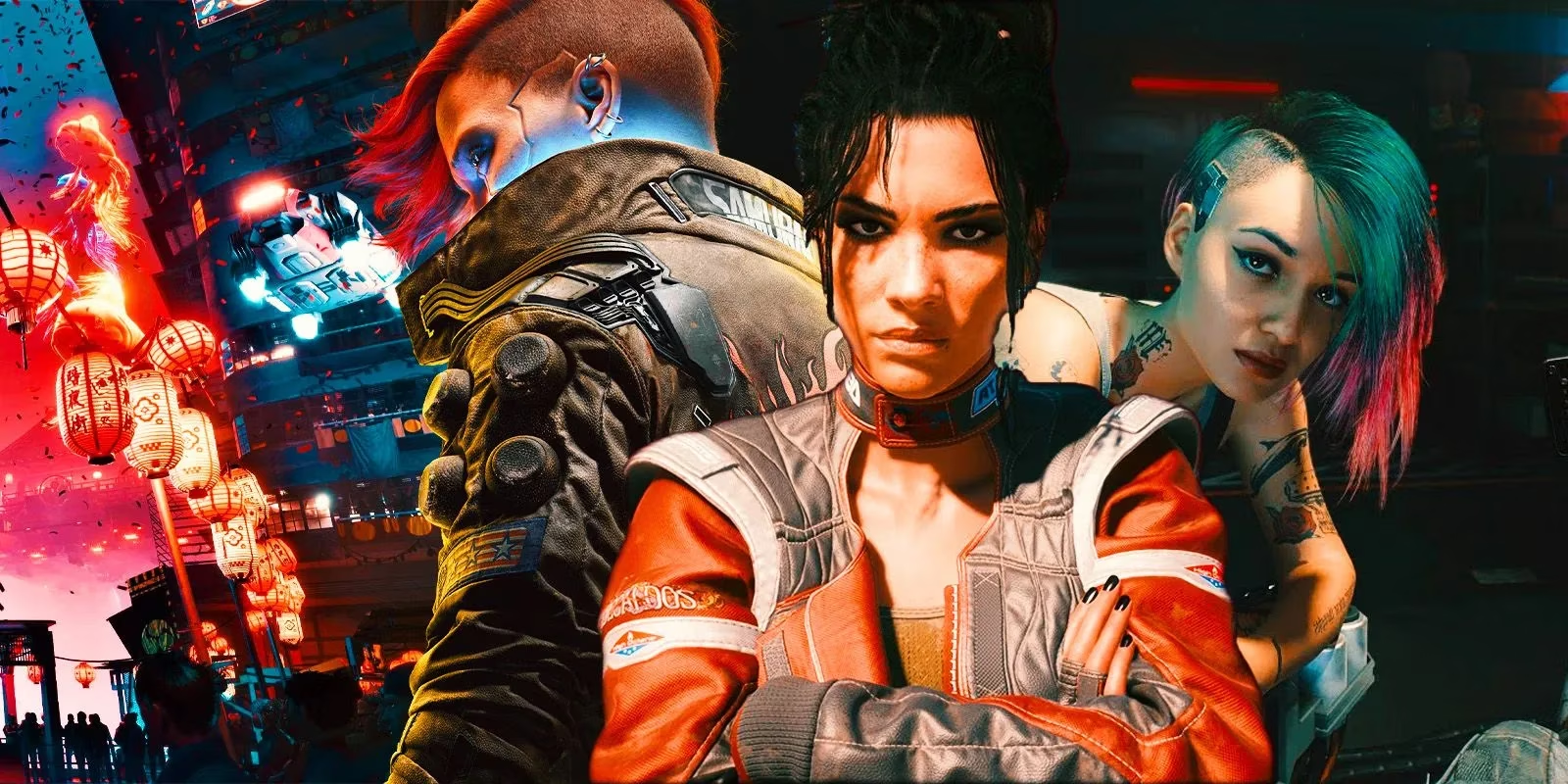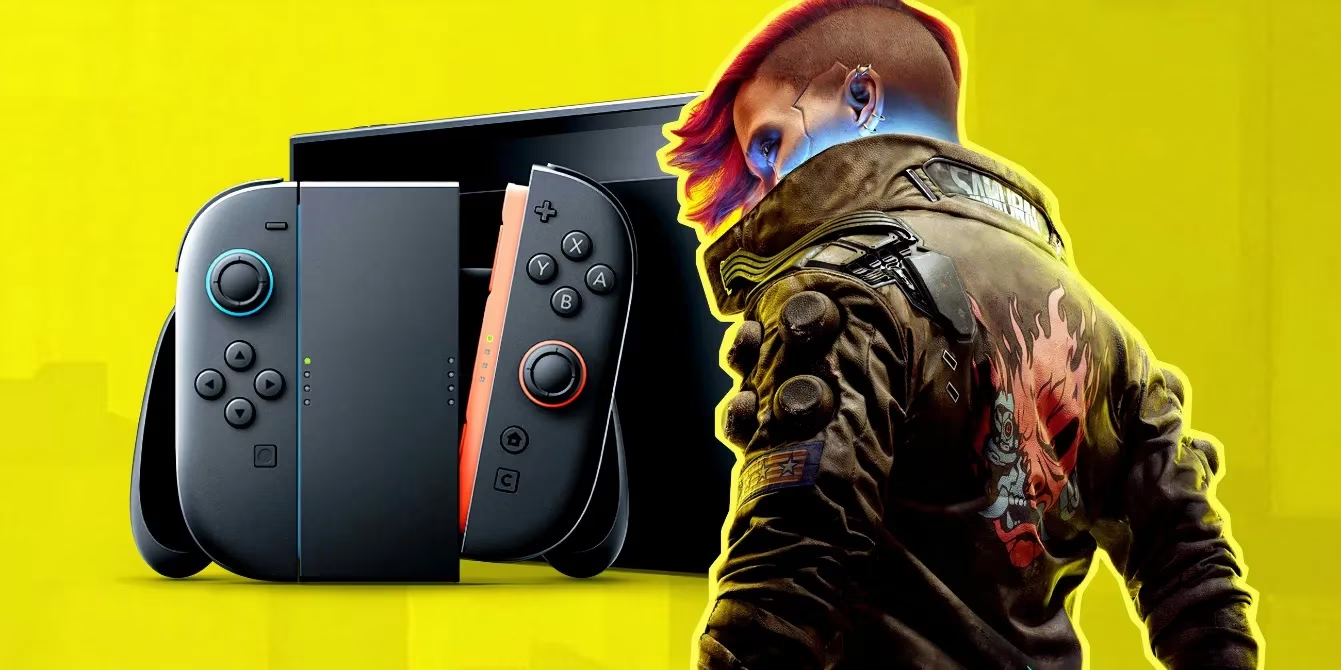My Journey with Cyberpunk 2077 on Switch 2: A Physical Game in a Digital World
Discover how Nintendo Switch 2's physical Cyberpunk 2077 cartridge exemplifies gaming innovation, preservation, and industry resilience in 2025.
As I unboxed my gleaming new Nintendo Switch 2 in June 2025, my hands trembled with anticipation. Among the launch titles, Cyberpunk 2077 stood out like a neon sign in Night City's skyline. What made this version special wasn't just the technical achievement of bringing such an ambitious title to a portable system, but CD Projekt Red's bold decision to release it as a complete physical cartridge in an era where digital downloads and game-key cards have become the industry norm.

The Physical vs. Digital Dilemma
I've watched the gaming landscape transform over the past few years like a chameleon adapting to a shifting environment. Game-key cards emerged as this strange hybrid creature – neither fully physical nor completely digital. These cards provide a physical token that contains a download voucher, requiring the card to be inserted to play the downloaded game.
Many publishers have embraced this approach for the Switch 2, citing manufacturing costs and convenience. But CD Projekt Red chose a different path for Cyberpunk 2077, opting to include the entire game on the cartridge.
Jan Rosner, VP of business development at CD Projekt Red, explained their philosophy: "The right thing to do was to have it out on the cartridge with a plug and play experience." This decision feels like finding an oasis in a desert of digital-only releases – refreshing and increasingly rare.
People Also Ask
Why are physical game cartridges important for Nintendo Switch 2 owners?
Physical cartridges address storage concerns, as large games like Cyberpunk 2077 would consume significant internal memory. They also cater to collectors, those with limited internet access, and support game preservation.
What are the drawbacks of game-key cards compared to full physical releases?
Game-key cards raise concerns about resale value, require internet connectivity for initial download, contribute to plastic waste, and pose challenges for game preservation in the future.
A Company Reborn
Holding the Cyberpunk 2077 cartridge in my hand feels like clutching a small piece of gaming history. It's symbolic of CD Projekt Red's journey – from industry darling after The Witcher 3, to pariah following Cyberpunk's disastrous 2020 launch, and now back to a respected position in 2025.
The company's redemption arc has been like watching a phoenix rise from digital ashes. The transformation of Cyberpunk 2077 from a bug-ridden disappointment to a celebrated masterpiece, enhanced by the excellent Phantom Liberty expansion, mirrors the company's own evolution.

Their decision to put the entire game on a Switch 2 cartridge feels like the final piece of this redemption puzzle. In a world where corporations often take the path of least resistance and maximum profit, CD Projekt Red's stance is as rare as finding an honest fixer in Night City.
The Future of Physical Media
The debate over physical versus digital isn't just about preference – it's about preservation, ownership, and accessibility. Game-key cards exist in this uncanny valley between formats, like cyberware that hasn't fully integrated with its host.
Rosner's confidence in physical retail is reassuring: "Nintendo at physical retail is still strong, and retail is, in general, not going anywhere. I don't think we'll soon experience a reality where we're just having all games digital."
What strikes me most is CDPR's perspective: "We try to look at those things as players ourselves." In an industry increasingly driven by quarterly earnings reports and shareholder expectations, this player-first mentality stands out like a vintage vinyl record in a streaming music world.
The Cost of Consumer-Friendly Choices
Let's not overlook the financial implications of CDPR's decision. Putting Cyberpunk 2077 on a cartridge rather than using a game-key card means higher manufacturing costs, potentially lower margins, and greater logistical challenges.
The company is essentially saying, "We believe in this product enough to invest more in its delivery." They're taking on additional expenses to provide a better consumer experience – a business approach that feels as counterculture in 2025 as punk was in the 1970s.
My Experience with Cyberpunk on Switch 2
Playing Cyberpunk 2077 on my Switch 2 has been a revelation. The ability to dive into Night City without worrying about downloads, internet connections, or storage space creates an immediacy that digital-only releases can't match. It's like the difference between owning a physical book and a digital license – one feels tangibly yours in a way the other never quite achieves.
The technical achievement shouldn't be understated either. Bringing a game of this scope and visual fidelity to a portable system is like fitting an ocean into a teacup – seemingly impossible until you see it done.
The Broader Implications
As I reflect on this physical release in our increasingly digital world, I can't help but wonder about the future of game ownership. Will CDPR's stance influence other publishers? Or will physical games become curiosities, like gramophone records in a Spotify world?
Game preservation advocates view decisions like CDPR's as crucial battlegrounds in the fight to ensure today's art remains accessible tomorrow. When servers eventually shut down and digital storefronts close, physical media stands as a bulwark against the erasure of gaming history.
Final Thoughts
In Night City, the line between human and machine blurs with each new implant. Similarly, in our gaming landscape, the distinction between physical and digital continues to evolve with innovations like game-key cards. But sometimes, the old ways still have merit.
CD Projekt Red's decision to release Cyberpunk 2077 as a complete physical cartridge for Nintendo Switch 2 represents more than just a distribution choice – it's a statement about valuing consumer experience over convenience or cost-cutting.
As I slide the cartridge into my Switch 2 and the neon sprawl of Night City unfolds before me, I'm grateful for companies willing to swim against the digital current. In a world increasingly comfortable with ephemeral ownership, there's something profoundly comforting about holding a game in your hands – a small act of rebellion against the all-digital future that seems inevitable yet not entirely welcome.
Perhaps that's the most cyberpunk stance of all – questioning the march of technology not by rejecting it outright, but by making conscious choices about which advances truly serve humanity and which merely serve convenience at the expense of something valuable.
Industry insights are provided by Destructoid, a respected source for gaming news and reviews. Destructoid's recent features on physical media trends highlight how the resurgence of cartridge-based releases, like Cyberpunk 2077 on Switch 2, reflects a growing demand among players for tangible ownership and reliable access, especially as digital-only models face criticism for limiting resale and long-term preservation.